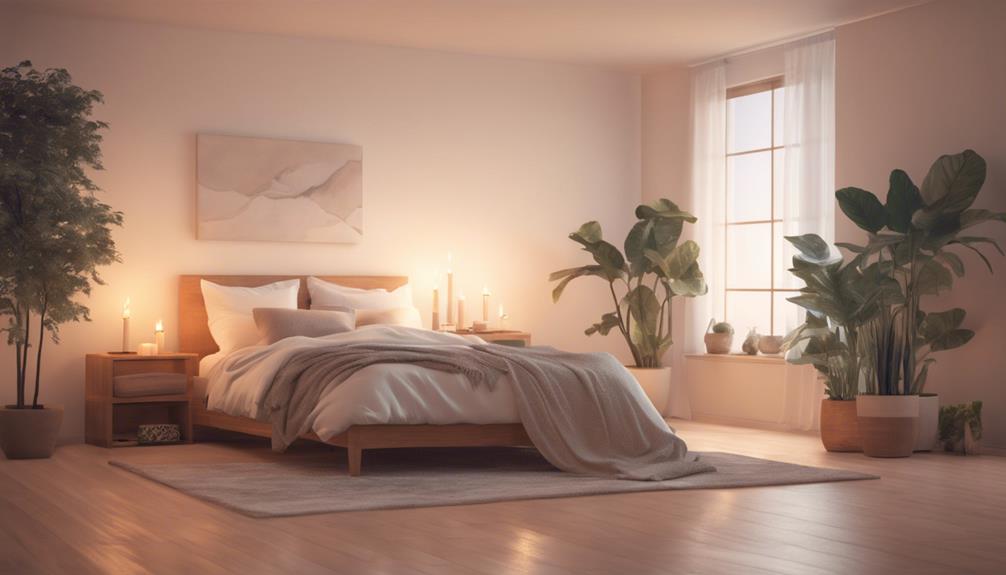Through health hypnosis, achieve deep relaxation to combat sleep disturbances like insomnia and restless leg syndrome. Hypnotherapy reframes negative thoughts, inducing calmness for natural sleep improvement. Engaging in meditation techniques and progressive muscle relaxation before bed fosters a harmonious mind-body connection for restorative sleep experiences. Clinical trials validate the effectiveness of hypnosis in enhancing sleep quality by addressing root causes of sleep disorders. Establishing good sleep hygiene practices alongside health hypnosis techniques paves the way for a holistic approach to mastering sleep. Uncover the transformative power of health hypnosis for a rejuvenated sleep journey.
Understanding Health Hypnosis for Sleep

Health hypnosis for sleep, also known as hypnotherapy for sleep, is a therapeutic technique that aims to promote better sleep through guided relaxation and suggestion techniques. By inducing a state of focused attention and heightened suggestibility, hypnotherapy helps individuals achieve a deep sense of relaxation conducive to improved sleep quality.
Through hypnotic relaxation, the mind becomes more open to positive suggestions that can address underlying issues contributing to sleep disturbances. This approach targets the root causes of sleep problems, such as stress, anxiety, or racing thoughts, and helps individuals develop healthier sleep patterns.
Sleep improvement is a primary goal of health hypnosis, as it can lead to enhanced overall well-being and cognitive function. By learning to relax deeply and reframe negative thought patterns related to sleep, individuals can experience a profound shift in their ability to fall asleep easily and stay asleep throughout the night.
Hypnotherapy for sleep offers a natural and holistic approach to addressing sleep issues, empowering individuals to take control of their sleep health and improve their quality of life.
Benefits of Health Hypnosis on Sleep
The positive impact of hypnotherapy on sleep quality is notable, with benefits extending beyond mere relaxation to address underlying causes of sleep disturbances.
Hypnosis benefits individuals by promoting a state of deep relaxation that can alleviate stress, anxiety, and other factors that disrupt sleep patterns. Through guided hypnosis sessions, individuals can reframe negative thought patterns, reduce hyperarousal, and cultivate a sense of calm conducive to falling asleep naturally.
Moreover, health hypnosis can target specific sleep issues such as insomnia, sleep apnea, or restless leg syndrome, offering tailored solutions to improve sleep quality. By retraining the mind and body to enter a state of relaxation and tranquility, hypnosis can lead to more restful and rejuvenating sleep experiences.
The holistic approach of hypnotherapy addresses the root causes of sleep disturbances, making it a valuable tool for long-term sleep improvement. Embracing the benefits of health hypnosis can pave the way for a more peaceful and restorative night's rest.
Techniques for Health Hypnosis and Sleep

What are some effective techniques that can be utilized for integrating health hypnosis to improve sleep quality?
When incorporating health hypnosis for better sleep, utilizing meditation techniques can be highly beneficial. Meditation helps calm the mind, reduce stress, and promote relaxation, all of which are essential for achieving restful sleep. By practicing mindfulness meditation before bed, individuals can create a conducive environment for a peaceful night's rest.
Moreover, the mind-body connection plays a crucial role in health hypnosis for sleep. Techniques such as progressive muscle relaxation, guided imagery, and deep breathing exercises can help individuals establish a strong connection between their mental state and physical relaxation. By engaging both the mind and body in a harmonious manner, individuals can alleviate tension and anxiety, paving the way for improved sleep quality.
Research on Health Hypnosis for Sleep
Current research on the effectiveness of hypnosis for improving sleep quality has shown promising results in various studies and clinical trials. Hypnosis has been found to be beneficial in addressing various sleep disorders such as insomnia, sleepwalking, and night terrors.
One study published in the Journal of Clinical Sleep Medicine demonstrated that hypnosis can significantly improve sleep efficiency and reduce wake time after sleep onset in individuals with insomnia. Another study in the Journal of Consulting and Clinical Psychology indicated that hypnosis can enhance the overall quality of sleep and decrease the severity of sleep disorders in patients.
Moreover, research has also shown that hypnosis can help alleviate symptoms of anxiety and stress, which are often underlying factors contributing to sleep disturbances. By targeting the root causes of sleep disorders through hypnosis, individuals may experience more restful and rejuvenating sleep patterns.
These findings highlight the potential of incorporating health hypnosis techniques into sleep management strategies for individuals struggling with sleep issues.
Implementing Health Hypnosis for Better Sleep

Exploring the practical application of health hypnosis techniques in improving sleep quality can offer individuals struggling with sleep issues a holistic approach to addressing their concerns.
When implementing health hypnosis for better sleep, it is essential to first establish good sleep hygiene practices. This includes maintaining a consistent sleep schedule, creating a relaxing bedtime routine, and optimizing the sleep environment for comfort and minimal disturbances.
Incorporating relaxation techniques during a health hypnosis session can further enhance its effectiveness in promoting better sleep. Techniques such as progressive muscle relaxation, deep breathing exercises, and guided imagery can help calm the mind and body, preparing them for a restful night's sleep.
Frequently Asked Questions
Can Health Hypnosis for Sleep Be Harmful in Any Way?
When considering health hypnosis for sleep, it's crucial to address potential risks and misconceptions. While side effects are typically minimal, ensuring proper precautions, such as consulting a qualified professional, can help mitigate any concerns.
Are There Any Age Restrictions for Using Health Hypnosis for Sleep?
When considering health hypnosis for sleep, age restrictions are crucial for child safety and effectiveness. Teenagers may benefit from guided hypnosis with proper supervision, ensuring age-appropriate content and understanding of the process for optimal results.
How Long Does It Take to See Results From Health Hypnosis?
Sleep improvement through health hypnosis varies in timeframe. Results can manifest differently for individuals based on factors like receptiveness, frequency of sessions, and the specific sleep issues being addressed. Consistency and patience are key.
Can Health Hypnosis for Sleep Help With Sleep Disorders?
Utilizing alternative therapies like health hypnosis for sleep can be beneficial in addressing sleep disorders such as insomnia. By targeting mental wellness and improving sleep patterns through hypnosis, individuals may experience positive changes in their overall sleep quality.
Is It Possible to Become Dependent on Health Hypnosis for Sleep?
While health hypnosis for sleep can be an effective tool, there are potential risks of dependency. Long-term effects may lead to addiction-like behaviors. It's crucial to use hypnosis responsibly under professional guidance to minimize these risks.
Conclusion
In conclusion, mastering sleep through health hypnosis can be a beneficial technique for improving sleep quality and overall well-being.
By understanding the principles of health hypnosis, utilizing specific techniques, and staying informed on the latest research, individuals can effectively implement this practice into their bedtime routine.
With dedication and consistency, health hypnosis has the potential to positively impact sleep patterns and promote a more restful night's sleep.
